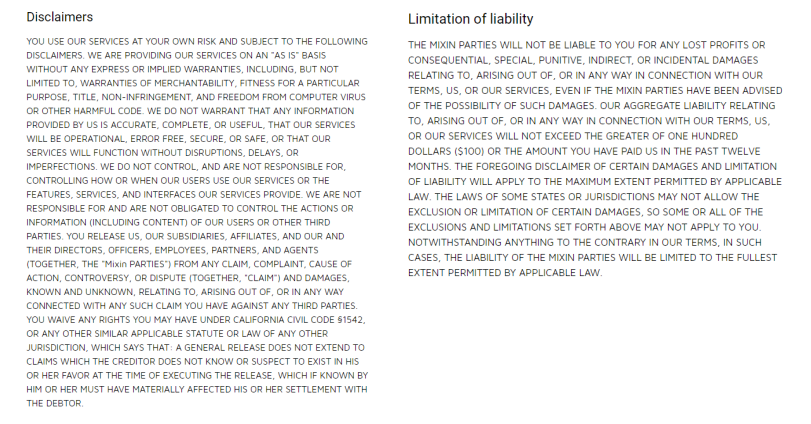US$200 million in virtual currency was stolen. Who will pay for the losses of MIXIN users?
Author of this article: Liu Zhengyao-Senior Lawyer at Shanghai Mankiw Law Firm
The popularity of Mixin being stolen seems to have subsided, but there are still friends asking how to recover losses on Mixin. Therefore, Lawyer Liu feels that it is still necessary to talk about my country’s current laws and regulatory policies, and the treatment of virtualization in judicial practice from a legal perspective. What is the attitude towards currency, and how can ordinary investors better protect their rights and interests?
01 Event background
Mixin started in 2017 and is already a long-lived old project in terms of the life cycle of the currency circle. However, on September 25, 2023, SlowMist issued a security announcement stating that the cloud service provider database of Mixin Network was attacked by hackers in the early morning of September 23, resulting in the partial loss of its assets, amounting to approximately US$200 million. Mixin admitted on its official Twitter account that it had been attacked and had contacted Google and the SlowMist team to assist in the investigation.
As of now, Mixin has not announced the details of the attack, but it has preliminary plans for user loss compensation: Mixin founder Feng Xiaodong said that Mixin will officially compensate users for up to 50% of their losses, and the remaining losses will be paid in bonds. Compensation in currency.
The majority of Mixin users are from mainland China. Many people are concerned about whether they can seek Chinese legal help after their virtual assets are stolen. This is also the question that Lawyer Liu is asked the most.
02 Can Chinese law govern it?
From the perspective of Chinese law, the Mixin theft incident can be analyzed from two aspects: civil liability and criminal liability.
(1) Civil liability analysis
The main subjects of civil liability are the user and the Mixin platform. The user is completely the victim in this incident. As for the amount of the platforms loss to the user, whether it is 50% or 100% or other proportions, it mainly depends on the Service Agreement between the platform and the user. agreement and the recognition of virtual assets in my country’s judicial practice.
According to the simple feelings of ordinary people, I deposited money on a platform. If it is lost due to poor storage of the platform, of course the platform will bear all liability for compensation. However, many platforms have absolute dominance in Internet services. For example, in the Web2 world, the ownership of your WeChat, Douyin and other accounts is in the hands of the platform, and all users have is the right to use the software. Web3 attempts to create a decentralized world where users fully own their own receipts. However, in the early stages of Web3s expansion, the participation of centralized institutions, such as major exchanges and the Mixin platform, is still indispensable. Centralized institutions must give priority to their own interests, and Mixin is no exception. In the Service Agreement for user registration, the Disclaimer clause clearly stipulates that the Mixin platform:
No warranties, express or implied, including, but not limited to, warranties of merchantability, fitness for a particular purpose, title, non-infringement, and freedom from computer viruses or other harmful material are provided. We do not warrant that any information we provide is accurate, complete or useful, our services will be operational, error-free, reliable or secure,,,
You release us, our subsidiaries, affiliates, and our and our directors, officers, employees, partners, and agents (collectively, the Mixin Parties) from any claims, complaints, causes of action, disputes,,,
The Mixin Parties are not responsible for any lost profits or consequential, special, punitive, indirect or incidental damages related to our services,,,
The domineering nature of the above-mentioned format clauses is evident on the paper, but Lawyer Liu would like to remind everyone that even if the user agrees to the above-mentioned clauses when registering, it does not mean that the court can fully recognize the legal effect of the above-mentioned clauses. Because a standard contract that unreasonably excludes ones main obligations or restricts the other partys main rights has no legal effect in China.
Regarding the degree of recognition of virtual currencies in my country’s judicial practice, generally speaking, courts tend to deny the property attributes of virtual property in civil cases and do not accept many cases involving virtual currencies. So for the Mixin theft incident, even if the platform and the user agree on the jurisdiction of the Chinese courts (in reality, the platform generally does not agree on the jurisdiction of the Chinese courts), in reality it is difficult to be accepted by the Chinese courts.

(The picture shows some terms of Mixin’s “Service Agreement”, sourced from Mixin’s official website)
(2) Analysis of criminal liability
In terms of the nature of the behavior, this case is a very typical theft crime in any country. So can the victim in the Mixin incident choose to call the police in mainland China? Of course it is possible: According to the personal principle of our country’s criminal law, the public security agency where the victim is located has the right to take charge of cases where the victim’s assets are stolen. If the perpetrator (such as a hacker) is found to be in my country, the public security also has the power to take charge of the case.
But there are two practical questions here: First, whether the public security organs are willing to take charge, because in practice, for cases involving virtual currency rights protection, especially when the platform is set up overseas and there are not many domestic victims, the public security organs are willing to open the case for investigation. The willingness is not high; the second is whether the public security has the ability to take charge. Whether the identity of the hacker and the theft method in the Mixin case can be identified and detected by the public security in mainland China is also a very real problem.
03 How do virtual currency investors protect their rights and interests?
Since my countrys regulatory authorities issued the Notice on Preventing Bitcoin Risks in 2013, they have successively issued a number of regulatory policy documents. The overall trend is to become more conservative and strict in determining the nature of virtual currencies. In this context, investors in virtual currencies must have sensitivity beyond conventional investments and transactions. Laws, regulations, and regulatory documents are the red line. Once it is touched, not only will ones own property interests not be protected, but my countrys laws, regulations, or supervision may also be violated, resulting in additional losses. When investing in a platform such as Mixin, you must examine the operating mode of the platform to ensure that the platform has sufficient security capabilities. In the current Chinese blockchain field, self-rescue and self-protection capabilities are much higher than seeking relief from other parties.
Special statement:
This article is an original article by Shanghai Mankiw Law Firm. It only represents the personal views of the author of this article and does not constitute legal consultation or legal opinions on specific matters. If you need to reprint the article, please contact Mankun Law Firm staff: MankunLawFirm



